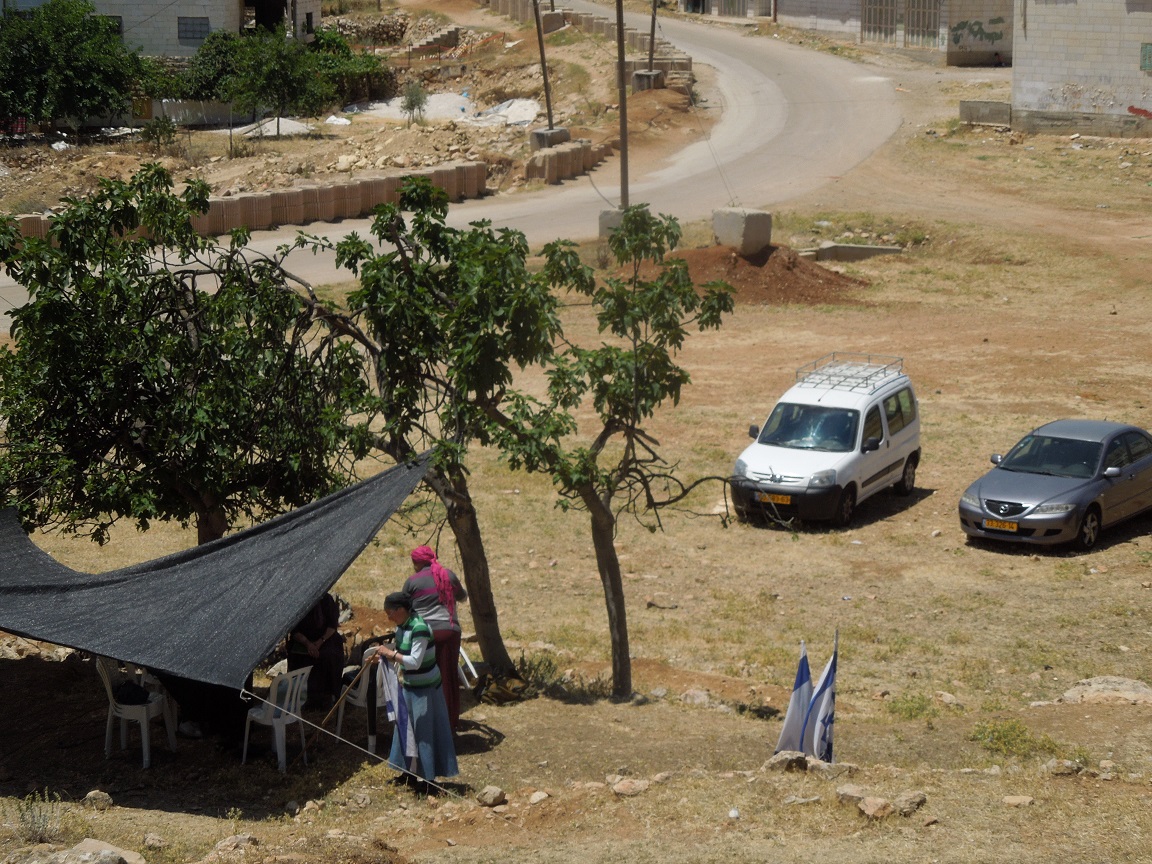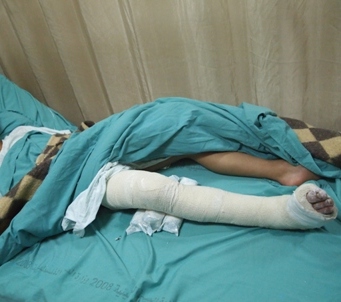Tag: Settlers
-
Settlers setting up tent and planning road in Palestinian owned land in Al Khalil
27th May 2013 | International Solidarity Movement, Team Al Khalil | Hebron, Occupied Palestine UPDATE 28th May: Settlers claim that they will return on 28th May to build a road on Palestinian owned land in Wadi al-Hussein, Al Khalil. No building has yet taken place and settlers have yet to provide any documentation or court…
-
Life in Hebron disrupted by another settler “tour”
26th May 2013 | International Solidarity Movement, Team Al Khalil | Hebron, Occupied Palestine Yesterday the illegal settlers of the city of Al Khalil/Hebron held a walk through the Palestinian souq and nearby neighbourhoods. Prior to this, Israeli forces entered Palestinian homes, occupying roof tops. Throughout the tour Palestinian movement was restricted, and the soldiers…
-
Updated: 13 year-old boy shot at by settlers, tortured by soldiers, denied medical attention
19th May 2013 | International Solidarity Movement, Team Nablus | Qaryut, Occupied Palestine UPDATED: The 13-year-old Qaryut boy attacked by settlers on 16 May completed an operation on his lower leg and foot on Friday and has since been released to recover at home. He also provided a full account of his attack and the…


